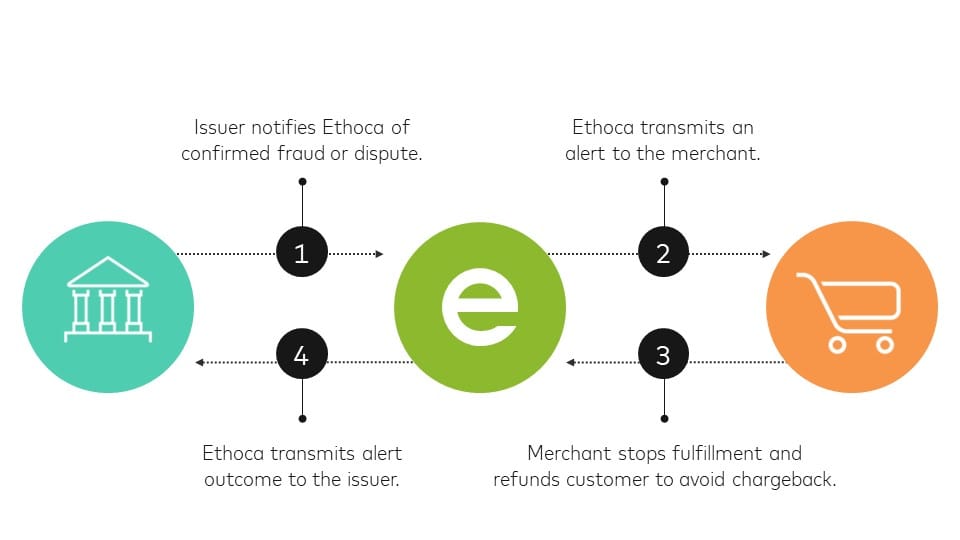
In the competitive world of sales, having a well-defined and comprehensive business plan is crucial for success. A sales business plan serves as a roadmap that outlines your goals, strategies, and tactics to drive sales and achieve growth. It provides a clear direction for your sales team and helps you stay focused on your objectives.
However, creating a sales business plan from scratch can be a daunting task. That's where a sales business plan template comes in handy. A template provides a framework and structure that simplifies the process of developing your plan, allowing you to save time and effort.
In this blog post, we will delve into the key components of a sales business plan and discuss how to write an effective plan that aligns with your business objectives. We will also explore the advantages of utilizing a sales business plan template and provide guidance on customizing it to suit your specific needs.
Additionally, we will highlight common mistakes to avoid when creating your plan and offer insights on implementing and reviewing your sales business plan for ongoing success. By tracking and measuring performance, making necessary adjustments, and regularly reviewing and updating your plan, you can ensure that it remains relevant and effective in driving your sales efforts.
Whether you are a seasoned sales professional or a budding entrepreneur, this blog post will provide you with valuable insights and practical tips to create a sales business plan that sets you up for success. So, let's dive in and explore the world of sales business planning!
Understanding the Basics of a Sales Business Plan
A sales business plan serves as a roadmap for your sales efforts and provides a clear outline of how you will achieve your sales goals. Before diving into the details of creating a sales business plan, it's important to understand the basics and why it is essential for your business.
What is a Sales Business Plan?
A sales business plan is a document that outlines your sales goals, strategies, and tactics to drive revenue and achieve growth. It provides a comprehensive overview of your sales objectives, target market, competitive analysis, sales strategies, and financial projections.
Why is a Sales Business Plan Important?
Clear Direction: A sales business plan provides a clear direction for your sales team. It sets clear goals and objectives, ensuring that everyone is aligned and working towards the same vision.
Strategic Focus: By creating a sales business plan, you can identify the most effective strategies and tactics to reach your target market. It helps you prioritize your efforts and allocate resources efficiently.
Risk Mitigation: A well-developed sales business plan allows you to identify potential risks and challenges in advance. By understanding these risks, you can develop contingency plans and minimize potential setbacks.
Measurable Results: With a sales business plan, you can establish measurable goals and key performance indicators (KPIs). This enables you to track progress, measure success, and make data-driven decisions.
Investor Confidence: If you are seeking funding or investment for your sales efforts, having a well-crafted sales business plan demonstrates your professionalism, preparedness, and commitment to success. It increases investor confidence and enhances your chances of securing financial support.
Who Needs a Sales Business Plan?
A sales business plan is essential for any business or individual involved in sales, regardless of size or industry. Whether you are a startup founder, a sales manager, or a sales representative, having a sales business plan is crucial for guiding your sales efforts and achieving your revenue targets.
How Does a Sales Business Plan Differ from a Traditional Business Plan?
While a traditional business plan covers various aspects of a business, a sales business plan specifically focuses on the sales function. It delves into the strategies, tactics, and goals specific to generating revenue and driving sales growth. A sales business plan can be a standalone document or a component of a larger business plan.
Understanding the basics of a sales business plan lays the foundation for developing a comprehensive and effective plan. In the next sections, we will explore the key components of a sales business plan in more detail, providing insights on how to create a plan that aligns with your business objectives.

Components of a Sales Business Plan
A sales business plan consists of several key components that provide a comprehensive overview of your sales strategies, objectives, and tactics. Each component plays a crucial role in shaping your sales approach and ensuring alignment with your overall business goals. Let's explore the essential components of a sales business plan:
Executive Summary
The executive summary is the introductory section of your sales business plan. It provides a concise overview of your sales goals, strategies, and key highlights of the plan. This section should capture the reader's attention and provide a clear understanding of the direction and potential of your sales efforts.
Company Description
In the company description section, you provide an overview of your business, its history, mission, and unique selling proposition (USP). This section helps the reader understand your business, its values, and what sets you apart from competitors. It also sets the context for your sales strategies by highlighting your target market and customer segments.
Market Analysis
The market analysis section delves into the research and analysis of your target market. It includes an assessment of market size, growth potential, trends, and competitive landscape. This section helps you understand your customers' needs, preferences, and challenges, allowing you to tailor your sales strategies accordingly.
Organization and Management Structure
In this section, you outline the organizational structure of your sales team. It includes details about key roles, responsibilities, reporting relationships, and any specific sales methodologies or processes in place. This section demonstrates your team's capabilities and highlights the expertise and experience within your sales organization.
Sales Strategies and Tactics
The sales strategies and tactics section is the heart of your sales business plan. Here, you outline your approach to generating leads, converting prospects into customers, and maximizing sales opportunities. This section includes details about your sales channels, marketing activities, sales team training, and any other strategies you plan to implement to achieve your sales goals.
Funding Request
If you are seeking funding or investment for your sales efforts, this section outlines your financial needs and the justification for the requested funds. It includes a breakdown of expected sales-related expenses, revenue projections, and the expected return on investment (ROI). This section should demonstrate the potential for financial success and the value of investing in your sales initiatives.
Each component of a sales business plan plays a vital role in shaping your sales strategy and ensuring alignment with your business objectives. In the following sections, we will explore each component in more detail, providing guidance on how to effectively address and incorporate them into your sales business plan.
How to Write an Effective Sales Business Plan
Developing an effective sales business plan requires careful consideration and strategic thinking. In this section, we will explore the steps and key elements involved in creating a plan that aligns with your business objectives and drives sales success.
Understanding Your Target Market
To create an effective sales business plan, you must have a deep understanding of your target market. Conduct market research to identify your ideal customers, their demographics, needs, and pain points. This information will help you tailor your sales strategies and messaging to resonate with your target audience.
Defining Your Sales Goals
Clearly define your sales goals and objectives. Are you aiming to increase revenue, acquire new customers, or expand into new markets? Set specific, measurable, attainable, relevant, and time-bound (SMART) goals that align with your overall business objectives. This will provide a clear direction and help you track your progress.
Identifying Sales Channels
Determine the most effective sales channels for reaching and engaging your target market. Will you primarily focus on direct sales, online sales, partnerships, or a combination of multiple channels? Evaluate the pros and cons of each channel and select the ones that best align with your target market and sales goals.
Detailing Sales Strategies
Outline the strategies you will employ to achieve your sales goals. This may include lead generation tactics, sales promotions, relationship-building techniques, and customer retention strategies. Clearly define your value proposition and how you will differentiate yourself from competitors. Additionally, consider the sales methodologies and processes you will implement to streamline your sales efforts.
Forecasting Sales
Develop realistic sales forecasts based on historical data, market trends, and your sales strategies. Project your sales revenue, unit sales, and customer acquisition rates over a specific period. This will help you set realistic targets, allocate resources effectively, and measure the success of your sales efforts.
By following these steps and incorporating these key elements, you can write an effective sales business plan that provides a clear roadmap for achieving your sales goals. In the next section, we will explore the advantages of using a sales business plan template to streamline the planning process and ensure comprehensive coverage of all necessary components.
Utilizing a Sales Business Plan Template
Utilizing a sales business plan template can greatly simplify the process of creating your plan and ensure that you cover all the necessary components. In this section, we will explore the advantages of using a template, how to customize it to suit your needs, and common mistakes to avoid.
Advantages of Using a Template
Time-saving: A sales business plan template provides a pre-designed structure, saving you time and effort in creating one from scratch. You can focus on customizing the template to fit your specific business needs rather than starting from a blank page.
Comprehensive Coverage: Templates are often designed by experts and cover all the essential components of a sales business plan. This ensures that you don't miss any critical elements and have a well-rounded plan.
Professional Appearance: Using a template gives your sales business plan a polished and professional look. This is particularly important if you are presenting your plan to potential investors or stakeholders as it demonstrates your commitment and attention to detail.
Consistency: A template provides consistency in formatting and organization, making it easier for readers to navigate and understand your plan. It ensures that all the necessary information is presented in a logical and cohesive manner.
How to Customize a Template
While using a sales business plan template provides a foundation, it's important to customize it to suit your specific business needs. Here are some steps to help you customize a template effectively:
Review the Template: Take the time to thoroughly review the template, understanding each section and its purpose. This will help you determine which sections are relevant to your business and which ones may need modification.
Tailor the Content: Customize the content of the template to reflect your unique business, target market, and sales strategies. Replace generic information with specific details that accurately represent your company and its objectives.
Add Supporting Documentation: Include any supporting documentation such as market research reports, sales projections, or competitor analysis. This adds credibility to your plan and provides additional context for your strategies.
Update Financial Projections: Modify the financial projections in the template to align with your business goals and revenue targets. Ensure that your projections are realistic and based on reliable data.
Common Mistakes to Avoid
While using a sales business plan template can be beneficial, it's crucial to avoid common mistakes that can undermine the effectiveness of your plan. Some common mistakes to avoid include:
Copying without Customization: Simply copying a template without customizing it to your business can make your plan generic and lackluster. Take the time to tailor the template to your specific business requirements.
Neglecting Market Research: Relying solely on the template without conducting thorough market research can result in a plan that does not accurately reflect your target market and its dynamics. Ensure that your plan is grounded in market insights.
Overcomplicating the Plan: Avoid overloading your plan with excessive details and technical jargon. Keep it concise, clear, and focused on the key elements that drive your sales success.
Lack of Flexibility: While templates provide structure, it's important to remain flexible and adapt your plan as needed. Don't be afraid to make revisions and updates as your business evolves.
By utilizing a sales business plan template, customizing it to your needs, and avoiding common mistakes, you can create a comprehensive and effective plan that guides your sales efforts and helps you achieve your goals.
In the next section, we will explore the importance of implementing and regularly reviewing your sales business plan to ensure its ongoing effectiveness.
Implementing and Reviewing Your Sales Business Plan
Implementing and reviewing your sales business plan is crucial for ensuring its ongoing effectiveness and driving your sales efforts towards success. In this final section, we will explore the importance of tracking and measuring performance, making necessary adjustments, and regularly reviewing and updating your plan.
Tracking and Measuring Performance
To gauge the success of your sales business plan, it's essential to track and measure key performance indicators (KPIs). These can include metrics such as revenue growth, customer acquisition rates, conversion rates, and sales pipeline velocity. Regularly monitor and analyze these KPIs to assess the effectiveness of your sales strategies and tactics.
Making Necessary Adjustments
As you track and measure performance, you may identify areas that require adjustment or improvement. Be open to making necessary adjustments to your sales strategies, processes, or even your target market. Adaptability and flexibility are key in responding to market changes and maximizing sales opportunities.
Regularly Reviewing and Updating Your Plan
A sales business plan is not a static document. It should be regularly reviewed and updated to reflect changes in your business environment and evolving sales objectives. Schedule periodic reviews to assess the relevance and effectiveness of your plan. Update it with new insights, market trends, and revised sales goals to ensure its ongoing alignment with your business objectives.
Seeking Feedback and Input
Engage your sales team and other stakeholders in the review process. Seek their feedback and input on the effectiveness of the plan and potential areas for improvement. This collaborative approach fosters a sense of ownership and encourages buy-in from the team, leading to better execution and results.
Communicating and Aligning with the Team
Ensure that your sales team is aware of the sales business plan and understands their roles in achieving the defined goals. Regularly communicate updates, progress, and any adjustments to the plan. This alignment keeps the team motivated, focused, and working towards a common objective.
Celebrating Success and Learning from Failures
Acknowledge and celebrate successes achieved through the implementation of your sales business plan. Recognize individual and team achievements to maintain morale and motivation. Additionally, learn from failures or setbacks encountered along the way. Use them as opportunities for growth and improvement in refining your sales strategies and tactics.
By implementing and regularly reviewing your sales business plan, you can ensure its ongoing effectiveness in driving your sales efforts. Embrace a proactive and adaptable approach, track performance, make necessary adjustments, and keep your plan up-to-date to stay ahead of the competition and achieve your sales objectives.
In conclusion, a well-developed sales business plan serves as a valuable roadmap for your sales team, aligning efforts, and driving revenue growth. Utilize a template to streamline the planning process, customize it to your specific business needs, and avoid common mistakes. Implement and regularly review your plan, track performance, make adjustments, and communicate effectively to maximize your sales success. With a solid sales business plan in place, you are well-positioned to achieve your sales goals and drive business growth.


